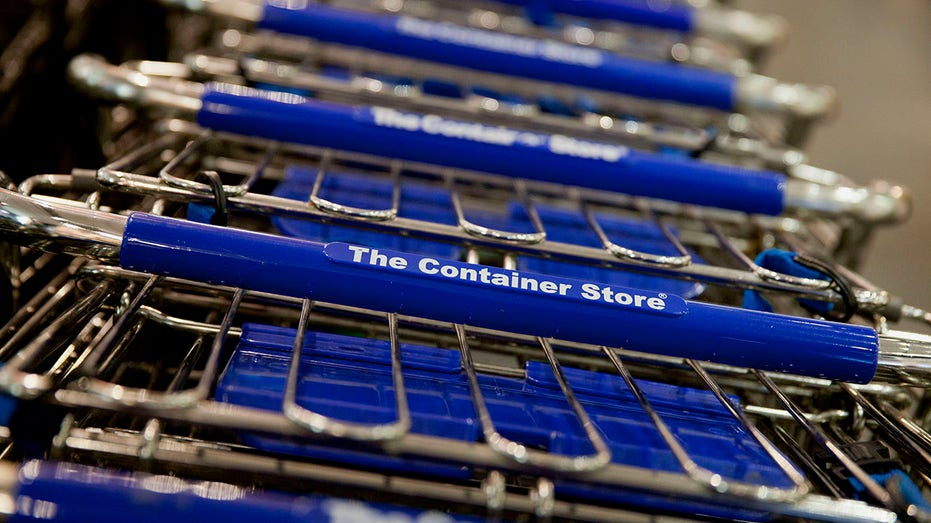The Container Store filed for Chapter 11 bankruptcy protection on Sunday in an attempt to save the business and ensure future profitability.
The move had been anticipated by Wall Street analysts as the retailer’s financial struggles continued to grow. The Texas-based company with 103 stores across 34 states and the District of Columbia sells storage products and custom closets.
The Container Store said this doesn’t mark the end of the retailer. The company said it filed for voluntary protection under Chapter 11 in the bankruptcy court for the Southern District of Texas as it plans to “implement a recapitalization transaction to bolster its financial position, fuel growth initiatives, and drive enhanced long-term profitability.”
At least 90% of the company’s lenders agreed to support its bankruptcy plan, which would provide the company with $40 million in fresh financing, help it reduce its debt by at least $45 million and ease debt payments as well as extend the time it has to pay off remaining debts.
WHY THE CONTAINER STORE COULD BE NEXT RETAILER TO GO BANKRUPT
The company said it will continue to operate its business as usual and provide products and in-home services to customers “without disruption.” Additionally, its stores and its website will “continue to operate as normal.” The company also said all the customer deposits and orders will be honored and delivered as normal.
However, a source close to the matter told FOX Business that the process “allows for companies to renegotiate the terms of their leases to align their store footprint with market realities and business needs.” If the company fails to “achieve meaningful rent reductions, they may be forced to close a select few locations,” the source said.
“The Container Store is here to stay,” CEO Satish Malhotra said, adding that the bankruptcy process will help the company advance its business and strengthen its capabilities.
“We are particularly excited about the future of our custom space offerings, which continue to demonstrate strength,” Malhotra said. “We intend to maintain our strong workforce and remain committed to delivering an exceptional experience for our customers while we execute this recapitalization and for many years to come.”
BED BATH & BEYOND BRAND IS COMING BACK TO PHYSICAL STORES
The retailer known for its organizing solutions had rapidly gained fame through the success of Netflix’s “Tidying Up” series, which premiered in 2019.
Today, it’s been contending with a weaker housing market and a growing availability of cheaper alternatives. Earlier this month, shares of The Container Store were halted on the New York Stock Exchange as it prepared to delist the stock, which had fallen below the NYSE’s continued listing standard. This standard requires listed companies to maintain an average global market capitalization of at least $15 million over 30 consecutive trading days.

Eric Snyder, partner at New York City-based Wilk Auslander LLP, previously told FOX Business that the housing market conditions and growing competition have “made this brick-and-mortar company… an unnecessary purchase.”
The company doesn’t benefit from holiday sales because their products are not considered discretionary purchases, which is exacerbating its woes, according to Snyder.
“Because of this, plus the loss of a $40 million lifeline from Beyond, bankruptcy and a quick sale is the only option,” Snyder said. Beyond Inc., which owns Bed Bath & Beyond and Overstock.com, backed out of a deal to invest $40 million in the Container Store Group as part of a new partnership.
Beyond originally planned to invest in the company and utilize a section within the Container Store’s real estate locations to showcase its assortment of kitchen, bath and bedroom items, which would be co-branded. But Beyond Inc. Executive Chairman Marcus Lemonis said last month that the company had concerns that The Container Store might not be able to reach an agreement with its lenders on terms that would meet the financial needs of the deal.
Latham & Watkins LLP served as The Container Store’s legal counsel. Investment bank Houlihan Lokey served as its financial adviser. FTI Consulting served as its financial and communications advisor, and A&G Realty served as real estate advisor.
Read the full article here












